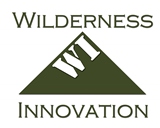Some years ago I worked as an engineer for a major sporting goods manufacturer. I was responsible for mountain products. I had to maintain the integrity of existing products as well as work on R&D for new products. The R&D was what I really loved to do, it was like Christmas every day, always something new. One thing I really learned from that experience was about trade offs. When we sought an improvement in something and we pushed in a certain direction to achieve that, we had to analyze what effects and side effects occurred as a result.
For example in some of our aluminum products we pushed hard for super strong, light weight tubing, as we achieved that, the tubing became more brittle. To a point that was fine because it still took a lot to break it, but when it did break it was almost explosive due to the extreme forces needed to break it, such that when it did give way all that energy was released violently. What we sought to do was find a point that maximized the strength, but limited the effects of violent breakage.
What’s the point of this in relation to cold and snow?
We find in all things that there are trade offs and the trick is to make the most of the advantages to us, while restricting any undesirable effects. Let’s start off with looking into snow and it’s influence on our activities.
In the summertime in many places, like where I live in the Desert Southwest United States, water is a very big concern. It can be quite difficult to find enough water, however in the winter there is snow providing us an almost unlimited supply. Snow and cold are conditions that can easily become deadly to us, but with the increased threat they bring, there is also a huge advantage, in fact an advantage that may completely offset, the threat they present. Think about this, hypothermia is the greatest killer in cold conditions, but very few people get it without first being dehydrated, so isn’t it amazing that the dangerous cold gives us abundant snow that can easily be melted into water we can drink and help prevent hypothermia. If snow and cold provide the remedy for the threat they issue, can you still say they are a bad thing?
Here’s another example. Some years ago I was on an outing with our Boy Scouts, where pleasant weather quickly turned to quite a snow storm. The boys got to their tents as the leaders buttoned things up. The boys were concerned about me as I had not yet set up a tent, indeed I didn’t bring one. What I had was a revolutionary sleeping system. I slid into a plastic tube that was sealed shut on the foot end. I quickly fell into a deep sleep. Before I knew it I could hear the boys awake, it was already morning and they were trying to figure out where I was. I was so comfortable that I didn’t want to get up yet, so I listened to them for a bit as they talked and explored around looking for me. Finally not wanting to stress them too much I crawled from my sleeping set up and popped up through the snow into the wind and chilly air. It had snowed a fair amount during the night making it impossible to find me by looking.
What happened was that the cold air turned rain into snow which fell on me while sleeping, to a depth of nearly two feet. All that fresh snow was very light due to the cold dry air, so it was light because quite a bit of air was in it. That trapped air became an insulator, similar to a down sleeping bag, keeping me very warm and comfortable. So here is another situation where the deadly cold and snow provided again a remedy protecting my body from heat loss while I slept through the night. Again I ask are snow and cold bad things?
I could go on and on with examples, in fact when I teach classes I always like to take a little time to list the positive effects of snow and cold. If we are inclined to find the advantages presented to us in winter conditions, we will find ways to not only survive it, but to also enjoy our time in it.
Here’s a little quick list of positives for being in the cold and snow:
- It’s not hot
- Solitude, not crowded with people
- Challenging
- No mosquitoes, bugs
- Plenty of water
- Lots of sheltering possibilities
- Furniture, you can carve your own out of snow
- Healthy clean environment
- Physical activity
- It’s absolutely beautiful
- Travel can be easier, much of the brush is under the snow and you can walk right over it
- Experience in it builds confidence resulting in more pleasure
So that’s it for now, the bottom line is to look for the remedies cold and snow give us to neutralize their threat. Most of all get out in it, learn to make the most of winter, gain all the experience you can, you will then have the confidence to really enjoy your time, and your safety will be greatly enhanced.
Until next time, “Simplifying Survival,” this is Perry Peacock for Wilderness Innovation.



